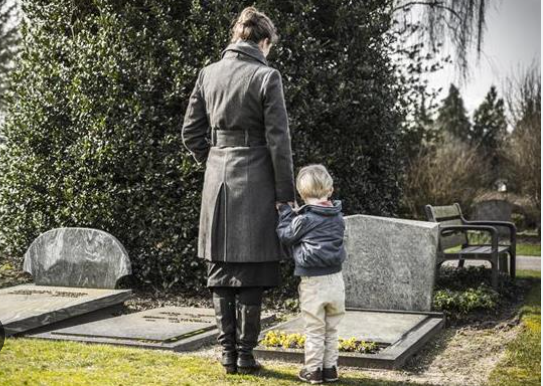Death of Ex Husband Poem: How to Cope With the Loss of an Ex-Husband Through Poetry

Navigating the emotional landscape following the death of an ex-husband can evoke a myriad of complex feelings, often leaving individuals in search of meaningful ways to articulate their grief. Poetry emerges as a powerful tool for reflection and healing, enabling one to confront memories and emotions that may linger unresolved. By exploring various poetic forms, individuals can not only honor their past relationships but also embark on a journey toward closure and understanding. Yet, one may wonder how to effectively harness this creative expression to facilitate personal healing and connection with others who share similar experiences.
Understanding Grief After Loss
Experiencing grief after loss is a deeply personal journey that can evoke a myriad of emotions, from profound sadness to fleeting moments of joy.
Understanding the grief stages—denial, anger, bargaining, depression, and acceptance—facilitates emotional expression.
Acknowledging these stages allows individuals to navigate their feelings authentically, fostering healing and ultimately paving the way to a renewed sense of freedom and personal growth.
The Role of Poetry in Healing
Healing often unfolds through various expressions of creativity, and poetry stands out as a profound medium for those grappling with loss.
Engaging in poetic therapy can foster emotional release and provide a safe space for reflection.
Key benefits include:
- Self-Expression: Articulating complex emotions.
- Connection: Relating personal experiences to universal themes.
- Closure: Creating a narrative for healing.
Embrace poetry as a pathway to freedom and understanding.
Types of Poems for Reflection
Poetry offers a diverse array of forms that can facilitate personal reflection during times of loss.
Lyrical reflections, such as elegies and free verse, invite deep emotional exploration, providing a safe space for emotional release.
Haikus and sonnets can encapsulate fleeting moments of grief, while narrative poems tell stories of shared experiences, aiding in the healing process and fostering a sense of connection.
Writing Your Own Poems
Creativity can serve as a powerful outlet for processing grief, and writing your own poems provides an intimate way to articulate the complexities of loss.
To begin your journey, consider these writing prompts for emotional release:
- Reflect on a cherished memory.
- Write a letter to your ex-husband expressing unresolved feelings.
- Describe the impact of your relationship on your life.
Embrace your voice and heal through words.
Reading Poems for Comfort
Reading poetry can provide a profound sense of solace during times of loss, offering words that resonate with our deepest emotions.
Through the written expression of shared grief, we can find healing and a connection to the experiences of others.
In these verses, we often discover a comforting reminder that we are not alone in our sorrow.
Finding Solace in Verse
Finding solace in verse can be a powerful antidote to the pain of loss, as countless individuals have discovered throughout history.

Engaging in verse therapy offers profound emotional expression, allowing healing to unfold.
Consider these avenues:
- Reading comforting poetry that resonates with your feelings.
- Writing your own verses to articulate grief.
- Joining poetry groups for shared experiences and support.
Healing Through Written Expression
Poetry has the remarkable ability to cradle our emotions, offering a sanctuary where we can encounter our grief without judgment.
Engaging with poems provides an emotional release, allowing us to articulate feelings that may otherwise remain unspoken.
As a creative outlet, reading poetry can illuminate our path through loss, fostering understanding and acceptance while nurturing the healing process in a gentle, supportive manner.
Connecting With Shared Grief
While the experience of loss can feel isolating, immersing oneself in poetry that resonates with shared grief can provide profound comfort and connection.
Consider these approaches to enhance your experience:
- Reflect on shared memories through poetic imagery.
- Seek emotional release by reading aloud.
- Join a poetry group to foster community.
Engaging with poetry invites healing and helps navigate the complexities of grief.
Sharing Your Poetry Experience
Expressing one’s emotions through poetry can be a powerful way to navigate the complexities of loss.
Engaging in poetry workshops can foster a sense of community, encouraging participants to share their experiences and feelings through expressive writing.
This sharing not only validates individual grief but also creates a supportive environment where healing can begin, allowing for personal growth and liberation in the face of sorrow.
Finding Support Through Poetry Groups
Joining a poetry group can be a powerful way to connect with others who share similar experiences of loss.
These communities offer a safe space to express emotions and share personal stories, fostering a sense of understanding and solidarity.
Through the art of poetry, individuals can find not only their voice but also the comfort of shared healing.
Connecting With Others
Finding solace in the written word can be a transformative experience, particularly for those navigating the complexities of grief.
Poetry groups foster a powerful grief connection through shared experiences. Engaging with others can offer:
Read More Gifts for Ex Wife: Thoughtful Presents to Show You Still Care After Divorce
- Emotional support from those who understand.
- Opportunities to express feelings without judgment.
- A sense of community, helping alleviate feelings of isolation.
Together, we can find healing through poetry.
Sharing Personal Experiences
Many individuals discover that sharing personal experiences within poetry groups can serve as a vital step towards healing from grief.
By exchanging personal anecdotes and engaging in emotional reflections, members create a supportive environment that fosters understanding and connection.
This collective journey not only validates feelings but also empowers individuals to explore their grief creatively, ultimately leading to profound personal growth.
Honoring Memories Through Writing
Honoring memories through writing serves as a profound way to process grief and celebrate the lives of those we have lost.

Engaging in this practice fosters memory preservation and emotional expression.
Consider these approaches:
- Write letters to your ex-husband, sharing feelings and memories.
- Compose poems that capture shared experiences.
- Create a journal to document cherished moments.
Each act helps navigate the healing journey.
Moving Forward With Poetry
As we navigate the complex landscape of grief, poetry can serve as a guiding light, illuminating paths toward healing and renewal.
Through poetic reflections, we can articulate our pain, finding emotional release in the verses we create.
Each poem becomes a step forward, allowing us to honor the past while embracing the freedom to redefine our journey, transforming sorrow into strength.
Conclusion
In the tapestry of grief, poetry serves as a healing thread, weaving together memories and emotions into a coherent narrative. Each verse becomes a gentle balm, soothing the wounds of loss while illuminating the path toward acceptance. Through the rhythm of words, solace is found, transforming sorrow into a tribute of love. As the heart learns to dance again, poetry stands as both companion and guide, nurturing resilience and fostering a renewed sense of hope amid the shadows of remembrance.





